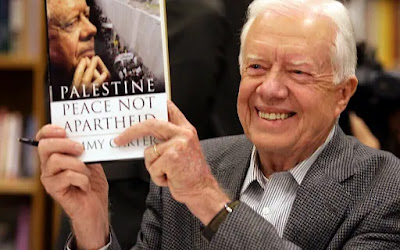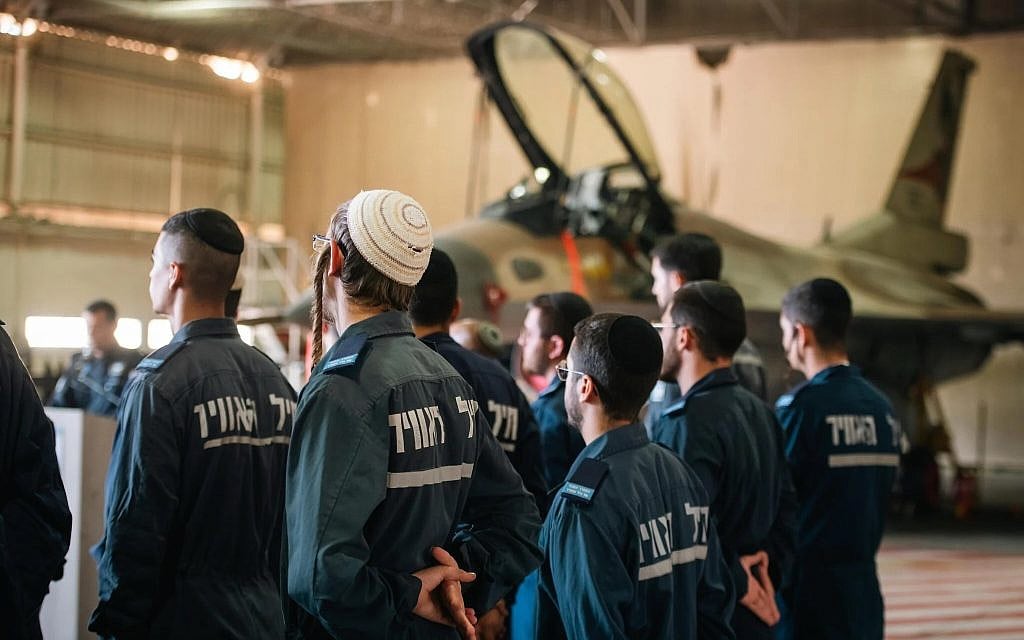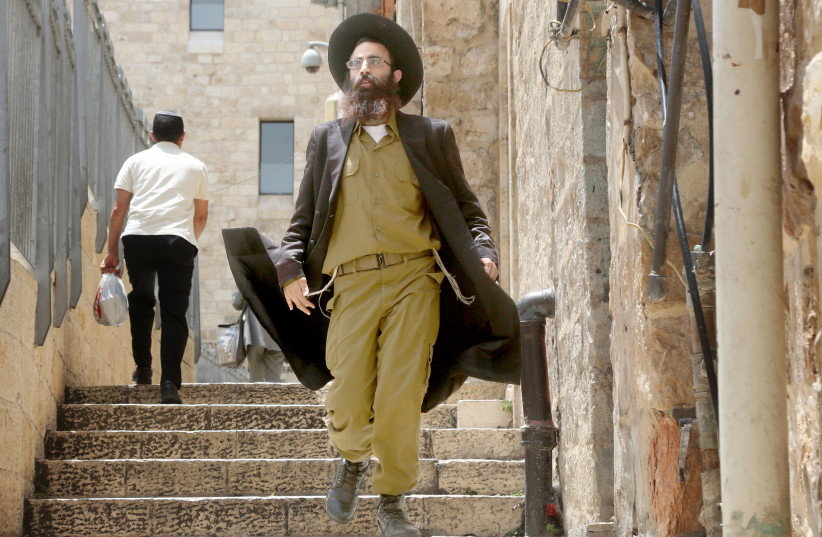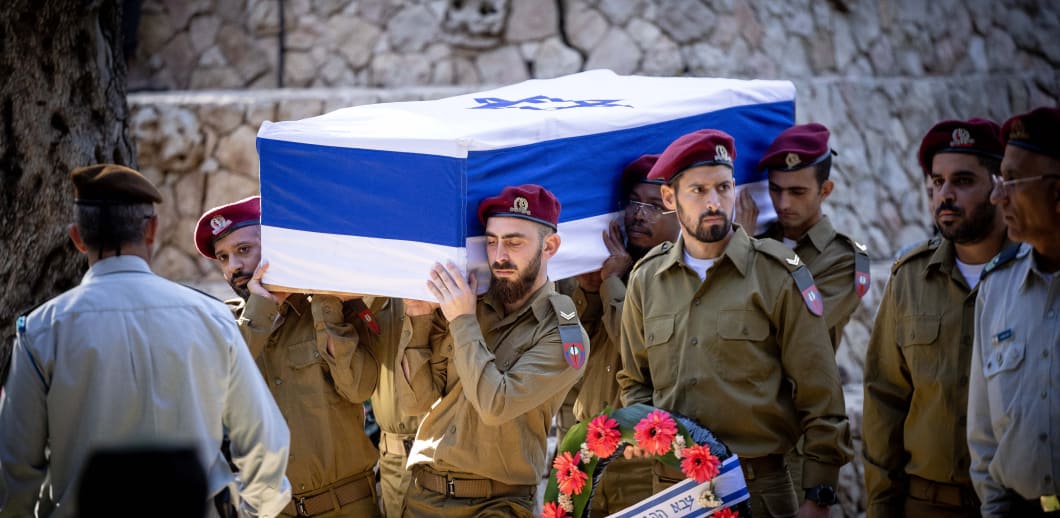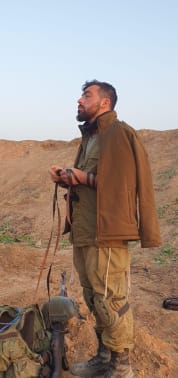
Israel Accuses Pope Francis of ‘Genocide Blood Libel Against the Jewish State’
Pontiff gets a robust history lesson on the Jewishness of Jesus.
|
|
Israel is rebuking Pope Francis for committing a “genocide blood libel against the Jewish state” and reminding the pontiff of the Vatican’s silence during the Nazi Holocaust amid an escalating diplomatic row between the Holy See and Israel.
In a strongly worded letter to the pontiff dated December 18, Amichai
Chikli, minister of Diaspora Affairs and Combating Antisemitism,
reprimands Francis for his part in a recent display portraying Jesus as a Palestinian Arab and schools the pope on the Jewishness of Jesus.
“There is no other way to understand the decision to present his image in a cradle, wrapped in a keffiyeh,” Chikli stresses. “Had this been a one-time matter, I would not have written. However, just a few weeks before this strange and false homage, in a more severe expression, you echoed the new blood libel, insinuating that the State of Israel ‘might be’ committing genocide in Gaza.
“It is a well-known fact that Jesus was born to a Jewish mother,
lived as a Jew, and died as a Jew,” Chikli writes in his three-page
missive. He cites Matthew’s gospel, reminding Francis of the “well-known
fact” that “Jesus was born in Bethlehem of Judea.”
Lessons in Jewish and Roman History
Chikli quotes other biblical texts reiterating to Francis the significance of “Bethlehem” and “Judah” in Jewish history. He notes that Bethlehem is both the city of Rachel’s death and David’s birth, explaining that Rachel is Israel’s matriach and David is Israel’s archetypal king.
“It is also a well-known fact that the term ‘Jew’ originates from Judah, the fourth son of Leah, from whom the Tribe of Judah descended,” the minister points out.
Chikli proceeds to give the pope a lesson in Roman history and the empire’s attempts “to eradicate the connection between the Jews and Judah; one of the most prominent of these was Emperor Hadrian.” He records details of Titus’s destruction of the Second Temple and the Bar Kokhba Revolt, which resulted in the massacre of 580,000 Jews.
“Hadrian was not satisfied with the physical destruction of the Jewish settlement; he anticipated the future, to the day when the Jews would seek to return to Judea. Therefore, he renamed the province of Judea ‘Syria Palestina,’ after the Philistines, the arch-enemy of Israel,” he writes, explaining the origin of the name “Palestine.”
In a dig at Francis, Chikli also notes that the pope can verify the evidence for himself by driving just “13 minutes by car from St. Peter’s Basilica” and examining the Arch of Titus with its depiction of Israel’s conquest and humiliation by the Romans.
Papal Rewriting of History
Referring to the pope’s recent comments calling for an investigation into the alleged genocide in Gaza, reported by The Stream, the minister contends: “This is a desperate and disgusting attempt to rewrite history.”
“As a nation that lost six million of its sons and daughters in the Holocaust, we are especially sensitive to the trivialization of the term ‘genocide’ — a trivialization that is dangerously close to Holocaust denial,” he notes.
Chikli details how the term “genocide” can be aptly applied to Nazi Germany, which “for the first time in the history of nations, set as its ultimate goal the complete annihilation of an unarmed people with whom it had no conflict, and most of whom were not even living in its territory.
“Let us recall that between the Jews, who made up less than 1% of the population of Germany in the 1930s, and the Germans, there had been no prior violent, territorial, religious, or political conflict,” he notes.Recalling the “sickening strategy” of the “Final Solution,” the minister cites as one example the Treblinka death camp, where 845,000 Jews from Poland, including children and elderly people, were murdered in gas chambers and then dumped into execution pits, concluding: “This is what genocide looks like.”
Vatican Silent During the Holocaust
“The Vatican’s silence during those dark days of the Shoah is still deafening,” he writes, asking Francis to “clarify your stand regarding the genocide blood libel against the Jewish state,” a “new blood libel” recently promoted against Israel by the human rights organization Amnesty.
Chikli concludes by drawing Francis’s attention to the the 60th anniversary of the Nostra Aetate Declaration from the Second Vatican Council, which will be celebrated in 2025. The declaration marked a “significant milestone in the relationship between the Jewish people and Christianity,” he maintains, noting that Francis is known to be “a close friend of the Jewish people.”
The Vatican has maintained a diplomatic silence on the minister’s letter, with neither Vatican News nor Avvenire, the Italian bishops’ media, reporting on it.
In response, the pope has doubled down on Israel since Chikli’s letter, twice in public remarks last weekend accusing the Jewish state of massacring children in Gaza.
Francis Falsely Claims Cardinal Banned from Gaza
On Saturday, in his annual Christmas greetings to the Roman curia, Francis claimed that the Latin Patriarch of Jerusalem, Cardinal Pierbattista Pizzaballa “was not allowed into Gaza, as had been promised.”
“Yesterday children were bombed. This is cruelty. This is not war. I wanted to tell you this because it touches my heart,” the pope told members of the Vatican bureaucracy.
Citing the monk Dorotheus of Gaza, Francis added: “Yes, Gaza, the very place that is presently synonymous with death and destruction, is a quite ancient city, where monasteries and outstanding saints and teachers flourished in the first centuries of Christianity.”
However, a day later Vatican News confirmed that Pizzaballa had visited Gaza and presided at Mass as well as administered the sacrament of confirmation to several young people. The pope’s media did not refer to the Israeli ban on the cardinal’s visit to Gaza.
Instead, it acknowledged that “this is the second time that Cardinal Pizzaballa has managed to enter Gaza and visit the community led by the parish priest Fr. Gabriel Romanelli, following his visit on 16 May last.
“To ensure maximum security on the route, news of the visit was only given after arrival in the community,” Vatican News explained, hinting at the possibility that the pontiff may have been misinformed about Pizzaballa’s visit to Gaza.
The Holy Shmendrik mouthpiece also confirmed that the Latin Patriarch “will make his solemn entry into Bethlehem, where he will be welcomed by another suffering community and where he will celebrate Christmas Eve Mass in St. Catherine’s Church,” debunking rumors that Israel was restricting Pizzaballa’s visits to his Catholic flock in Judea and Samaria or the Gaza strip.
Undaunted, in his Angelus address at St. Peter’s Square on Sunday, Francis attacked Israel again, stating: “And with sorrow I think of Gaza, of so much cruelty; of the children machine-gunned, the bombing of schools and hospitals… So much cruelty!”
Severing Jesus from His Jewish Roots
Commentators previously slammed the de-Judaization of Jesus under the Francis pontificate.
Palestinian Authority President Mahmoud Abbas (aka Abu Mazen), a
holocaust denier and terrorism sponsor whom Francis warmly welcomed to
the Vatican on December 12 as The Stream reported, has redefined Jesus as “a Palestinian messenger” of hope in his 2023 Christmas address. Palestinian officials have also described Jesus as “the first Palestinian martyr,” and as a Palestinian jihadist.
“In the story of Christmas, Christ was born in modern-day Palestine
under the threat of a government engaged in a massacre of innocents,”
Rep. Alexandria Ocasio-Cortez, a Democrat activist and politician,
posted on social media on Christmas 2023.
“Rewriting history that Jesus wasn’t a Jewish resident of the Jewish country of Judea but rather a Palestinian man who was persecuted by Jews is gaining ground around the world, including in the Vatican,” international relations expert Dr. Yvette Alt Miller wrote in response to the Vatican featuring Jesus on a keffiyeh.
“Jesus was a Jew. If he were alive today, the world’s elites would be
clamoring for him to be thrown out of Judea as a settler,” wrote British
columnist Melanie Phillips in 2015, after the Vatican agreed to
recognize Palestine as a state. “And Jorge Mario Bergoglio, aka Pope
Francis, would be amongst them.”
Dr. Jules Gomes, (BA, BD, MTh, PhD), has a doctorate in biblical studies from the University of Cambridge. Currently a Vatican-accredited journalist based in Rome, he is the author of five books and several academic articles. Gomes lectured at Catholic and Protestant seminaries and universities and was canon theologian and artistic director at Liverpool Cathedral. This article was cross-posted with the author’s permission from The Stream.



